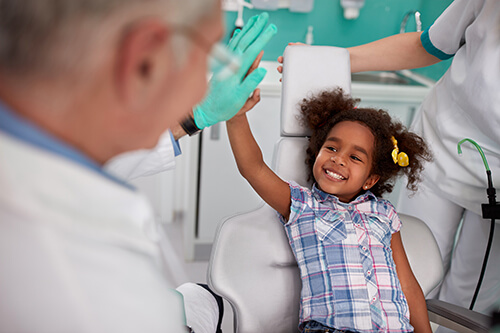
How Common Is Sleep Apnea In Children? When most people think of someone with sleep apnea, they picture a middle-aged overweight male. While this image may be a fairly accurate portrayal in many cases, it’s by no means a full representation of all of those who could potentially be afflicted with the disorder. In fact, many women suffering from sleep apnea are mistakenly diagnosed with insomnia due to this misconception. Even worse is that many children with sleep apnea are instead diagnosed with other disorders including ADHD because they don’t fit the typical patient profile. While studies do show that the prevalence of sleep apnea in children is much lower than adults (approximately 5% of children compared to 25% of adults 30 years of age and older), it’s still common enough to be cause for concern.
Children with untreated sleep apnea run the risk of having behavioral, adaptive and learning problems. Many of the symptoms of poor sleep caused by sleep apnea may present themselves as symptoms similar to that of ADHD, such as hyperactivity, difficulty with learning and concentration, and poor performance at school. Studies have shown that as many of 25% of children diagnosed with ADHD may actually have symptoms of sleep apnea and their learning and behavioral problems are instead related to poor and disrupted sleep. Moreover, children with untreated sleep apnea also run the risk of developing hypertension, obesity, and cardiac issues as they grow.
Children with sleep apnea exhibit many of the same symptoms as adults with the disorder. These include:
Scheduling an appointment with a sleep center like NYC SleepWell for an evaluation is the first step to diagnose or rule out the presence of sleep apnea in your child. A sleep specialist will conduct a physical exam and ask you and your child questions about their symptoms. If the sleep specialist determines that your child may have sleep apnea, an overnight sleep test will likely be recommended.
The pediatric sleep test, also known as a polysomnogram, is nearly identical to an adult sleep test in how it measures much of the same activity, including breathing, muscle movements, heart rate, blood oxygen levels, and brain activity. For children, an in-lab overnight sleep test is sometimes recommended, which means you would take your child to a sleep center. To ensure the comfort and safety of children undergoing a sleep test, parents are encouraged to sleep in the same room in a separate bed. A home sleep test for children over the age of seven is also available if you prefer.
Because enlarged tonsils and/or adenoids are the most common cause of sleep apnea in children, surgery to remove the tissues (tonsillectomy or adenoidectomy) corrects the symptoms in as many as 90% of the cases. For children whose sleep apnea is attributed to obesity, weight management and lifestyle programs are commonly recommended – with an emphasis on nutrition and exercise. In some cases, a CPAP (Continuous positive airway pressure therapy) may be recommended. For older children whose facial bone growth is mostly complete, an oral appliance may be recommended instead. There are also cases where seasonal allergies may aggravate symptoms of sleep apnea. For those children, allergy medications are recommended. If respiratory disorders contribute to a child’s sleep apnea, asthma medications or inhalers can also help.
At NYC SleepWell, our sleep specialists are experienced Board Certified doctors who will recommend the best course of action for your child’s needs. Our goal, plain and simple, is to help them sleep well and be healthy – and provide you with peace-of-mind for years to come!